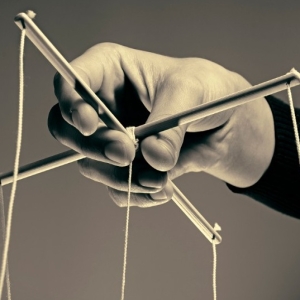
.jpg) Dr. John Singarayar
Dr. John Singarayar

In the intricate dance of Indian democracy, the Election Commission stands as a bastion of impartiality, ensuring fair and free elections. However, recent events have cast a shadow of doubt over its autonomy, with the swift appointment and resignation of Arun Goyal as Election Commissioner sparking controversy and allegations of political puppeteering by the ruling Bharatiya Janata Party (BJP).
Arun Goyal's journey through the corridors of power is emblematic of the bureaucratic elite, who navigates seamlessly between government appointments. A seasoned civil servant with a career spanning decades, Goyal's trajectory took a dubious turn when he transitioned from Secretary to the Central Government to the prestigious position of Election Commissioner.
The speed at which Goyal's appointment was processed raises eyebrows and questions the integrity of the selection process. The Association for Democratic Reforms (ADR), an NGO dedicated to promoting transparency and accountability in governance, wasted no time challenging the legality of Goyal's appointment. They argued that the hurried approval of his candidacy violated established legal norms and undermined the principles of meritocracy.
The Supreme Court, the ultimate arbiter of justice, was tasked with adjudicating this contentious issue. However, even the august chambers of the highest court in the land could not escape the shadow of suspicion that loomed over Goyal's appointment. The judges, perplexed by the haste with which the government acted, questioned the rationale behind such lightning speed. Their scepticism was palpable as they probed the circumstances surrounding Goyal's sudden retirement and subsequent elevation to the Election Commission.
Despite these lingering doubts, the case against Goyal's appointment was dismissed, leaving a bitter taste of injustice in the mouths of those who sought accountability. The dismissal of the petition only served to deepen the sense of disillusionment with the state of Indian democracy, where the lines between political expediency and institutional integrity blur.
But the drama did not end there. Just as swiftly as he ascended to the pinnacle of electoral oversight, Goyal made an abrupt exit, resigning from his post as Election Commissioner. Shrouded in mystery, his departure sent shockwaves through the political landscape, leaving observers scrambling to decipher the hidden motives behind this sudden move.
The timing of Goyal's resignation, coinciding with the impending Lok Sabha elections, amplifies suspicions of political interference. The vacancy left in the Election Commission further exacerbates concerns about its ability to function effectively in the lead-up to such crucial polls. With only the Chief Election Commissioner, Rajiv Kumar, at the helm, the commission's capacity to uphold the sanctity of the electoral process hangs in the balance.
The ease with which Goyal's resignation was accepted and swiftly published in the official gazette speaks volumes about the extent of the BJP government's control over key institutions. The brazen manner in which the government manipulates the levers of power undermines the foundational principles of democracy and erodes public trust in the electoral process.
At the heart of this saga lies a fundamental question: Who truly wields power in India's democracy? Is it the electorate, whose voices should be paramount in shaping the course of the nation, or is it a select group of political elites who pull the strings behind the scenes, orchestrating a carefully choreographed spectacle of democracy while serving their own interests?
The implications of this power struggle extend far beyond the confines of electoral politics. They strike at the very core of India's democratic ethos, challenging the notion of equal representation and accountability. If the guardians of democracy themselves are perceived as compromised, where does that leave the ordinary citizen, whose faith in the system hangs by a thread?
In the absence of robust checks and balances, the specter of authoritarianism looms large, threatening to engulf the fragile edifice of Indian democracy. The erosion of institutional integrity and the subversion of democratic norms pave the way for a dangerous slide into tyranny, where the will of the people is subjugated to the whims of a ruling elite.
To reclaim the promise of democracy, vigilant citizens must hold their elected representatives accountable and demand transparency and accountability in governance. The independence of institutions like the Election Commission must be safeguarded at all costs, lest they become mere puppets in the hands of political masters.
As the nation stands at a crossroads, the choices made today will shape the destiny of future generations. Will we succumb to the allure of authoritarianism, sacrificing our hard-won freedom at the altar of expediency? Or will we rise to the challenge, reclaiming the democratic ideals that form the bedrock of our nation?
The answer lies not in the halls of power but in the hearts and minds of ordinary citizens who refuse to be cowed by intimidation or disillusionment. It is they who hold the key to unlocking the true potential of Indian democracy and ushering in an era of genuine accountability and inclusivity.
The road ahead may be fraught with challenges, but it is also paved with hope and possibility. Let us seize this moment to reaffirm our commitment to democracy and rededicate ourselves to the noble pursuit of a more just and equitable society. In the face of adversity, let us stand united, knowing that the true power of democracy lies in the hands of the people.